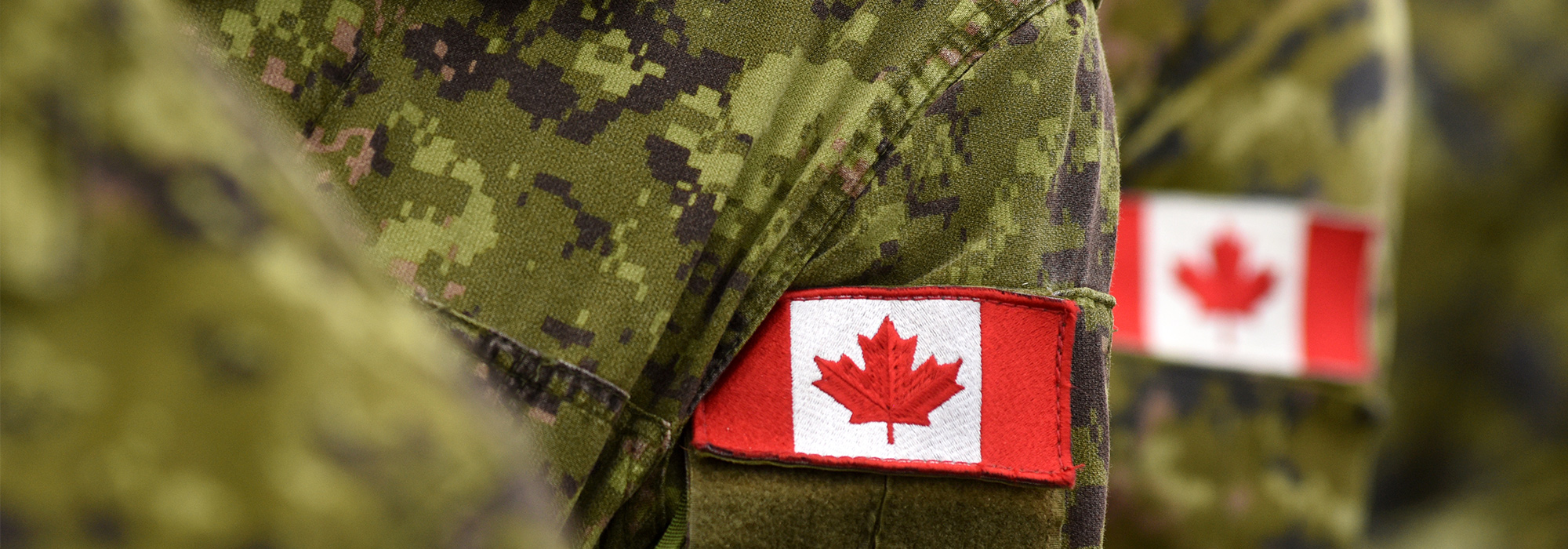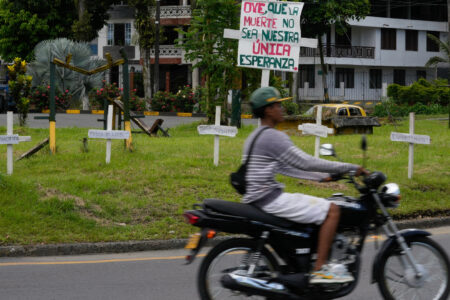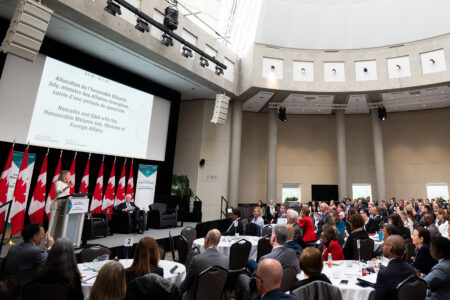
There is no shortage of views on the challenges confronting the Middle East or the path from conflict to peace and stability. If this is true of the region in general, it is certainly the case with respect to the decades-old Arab-Israeli conflict. However, while the issue may be the subject of multiple perspectives, it is surprising and disappointing that a scholar of Mira Sucharov’s calibre would miss the mark when it comes to an objective analysis of Canadian policy in the region.
Sucharov is mistaken on both the facts and the conclusions, and it is important for us to understand why. But first, it would be instructive to understand precisely what Canada’s engagement in the region has been during the six years that Prime Minister Stephen Harper has served in office.
The position espoused by Sucharov, echoing the elegiac laments of a coterie of retired Canadian foreign service officers, is threefold: (1) Canada has tilted wildly in favour of Israel; (2) this shift in policy has relegated Canada to the margins of international efforts and undermined Canada’s role as an “honest broker”; and (3) as a result, Canada plays virtually no constructive role in the region and in efforts to advance peace.
In 2012, Canadian ministers criss-crossed the region, visiting countries including Jordan, Tunisia, Saudi Arabia, Qatar, Turkey, Lebanon, Dubai, Libya, Morocco, Sudan and Egypt. They, of course, visited Israel and the seat of the Palestinian Authority (PA) in Ramallah. Media reports suggest that Canada’s ministers were well received throughout the region — the advancement of bilateral relations and the potential role Canada could play in advancing democratization in the region, progress on the Palestinian-Israel front, and emergency assistance for those displaced by the Syrian civil war and the Libyan crisis the year before. The frequency of Canadian visits to the region alone is suggestive of an engaged government.
Canada played an important role in the operation that resulted in the end of the Moammar Gadhafi regime in Libya. We are directly — and deeply — involved in the effort to ameliorate the situation of hundreds of thousands of refugees displaced by the violence in Syria. Canada has not only assisted Jordan to alleviate the suffering of refugees, we have further worked to buttress the Jordanian government and maintain the stability of this long-standing Canadian ally.
More directly on the Palestinian file, Canada has in fact maintained financial support for UNRWA (the UN agency that provides relief for Palestine refugees) programs at the same level as previous years. Canada has long expressed concern about the lack of transparency and accountability regarding UNRWA-administered programs and simply took steps to ensure that aid was being directed to emergency food and humanitarian relief efforts as originally intended.
Canada has also been central to what, by all accounts, is regarded as the single most successful program in support of developing Palestinian capacity: Operation Proteus. This initiative has provided the PA with the necessary training and infrastructure to assume responsibility for security in the areas it administers — the same area that is home to more than 95 percent of the West Bank Palestinian population. Indeed, the commitment of $300 million by the Harper government to develop PA civil society infrastructure, the criminal justice sector and security is unprecedented in Canadian experience.
A variety of initiatives aimed at enhancing economic opportunities in the West Bank and partnerships between Palestinians and Canadians offer additional texture to Canada’s constructive engagement in the region.
Sucharov does get it right when she points out that the Refugee Working Group (RWG), once chaired by Canada, has been inactive. However, perhaps by genuine error, she fails to note that the work of RWG was suspended in 1996 — a decade before Stephen Harper became Prime Minister. With Yasser Arafat’s rejection of the offer by Bill Clinton and Ehud Barak at Camp David in July of 2000, the entire architecture of the Oslo process collapsed — and we have all been trying to play catch-up since.
Sucharov and others seem dismayed at the uncommon and forthright declarations of the Harper government regarding core principles like Israel’s right to defend itself against relentless attacks — whether from Gaza or Lebanon, whether it is a military assault or the political variety (such as those at Durban or from various UN bodies, including the General Assembly).
The real question is why others don’t stand with Canada.
The question is not why Canada would “break” with other countries in its support for the only liberal democracy in the Middle East, the only nation that still has to endure an international debate regarding the legitimacy of its very existence. The real question is why others don’t stand with Canada. There is a clear relationship between the efforts to delegitimize the Jewish state and emboldened manifestations of anti-Semitism. Canada’s direct confrontation of that phenomenon requires no explanation or rationalization — but the failure of other Western countries to join with Canada surely does.
The real irony is that Canada’s principled stand has indeed resonated with our traditional allies and partners. And therein rests the definitive repudiation of Sucharov’s thesis. Look at the record of Canadian positions that were followed or endorsed by others: the designation of Hezbollah and Hamas as terrorist entities, the decision to boycott Durban II, the refusal to attend the UN General Assembly address by Iran’s genocidal leader. Canada’s intervention at the Francophonie Summit in Bucharest in 2006 benefited from the support of both the Bloc Québécois and the Liberal Party. At the Deauville Summit in 2012, Canada’s rejection of a statement that “cherry-picked” elements of President Barack Obama’s Middle East policy statement in favour of a collective endorsement of his entire speech moved all G-8 partners to endorse the Canadian position. The Canadian government’s institution of sanctions against Iran — including its targeting of the Iranian Revolutionary Guard Corps and the application of Special Economic Measures Act to re-enforce the sanctions regime — benefits from the full support of the opposition.
These are not the acts of a misdirected, rogue government. These are acts that speak to moral clarity.
Canada’s influence has been enhanced, rather than diminished, as a result of the strength of our government’s convictions. It is precisely for this reason that the PA expressed the view some months ago that Canada is in a better position to contribute to the peace process than ever before. That was certainly the mes- sage conveyed by Majdi al-Khaldi on behalf of President Mahmoud Abbas to Foreign Minister John Baird and Finance Minister Jim Flaherty when they met in Ramallah last year.
Canada’s objection to the recent effort by the PA to upgrade its standing at the UN was not rooted in a rejection of a Palestinian state. Rather, it was a rejection of the ploy to exploit the UN system and circumvent the obligation to achieve Palestinian statehood through direct negotiations with Israel.
In his 2011 magnum opus, Nobel laureate Daniel Kahneman suggests that our brains are formed by two systems. The first is the default mechanism that carries us through our routine activities and thinking. The second system is what we must draw on when there is a need for deeper analysis or critical thinking. But as our brains do not like to work too hard, we stick with ”system 1” whenever possible. Kahneman observes that therein rests our weakness and the root of the overwhelming majority of our faulty assumptions and conclusions. It makes us prone to seek out confirmation bias, rather than drill down to grab hold of an accurate assessment of a situation.
Those who share the position espoused by Sucharov and others would do well to review Kahneman’s Thinking, Fast and Slow. It very well might expand their horizons beyond the cliché and dismissive assessment of Canadian policy. It might draw them to conclude that, not only does this government preserve core Canadian values on such issues as a two state solution, settlements, refugees and the like, but that it has enhanced Canada’s position internationally.
Photo: Shutterstock by Bumble Dee






